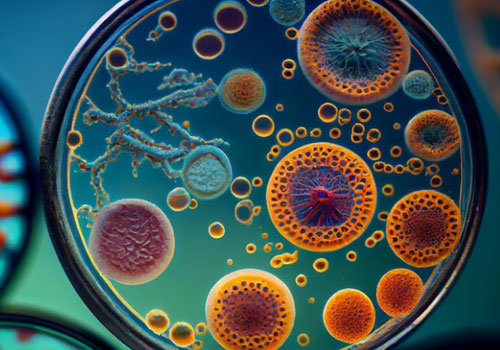| |
|
|
Microbiology services encompass a wide range of laboratory-based activities focused on the detection, identification, and characterization of microorganisms, including bacteria, viruses, fungi, and parasites. These services play a critical role in diagnosing infectious diseases, monitoring antimicrobial resistance, and supporting infection prevention and control efforts. Here are some key aspects of microbiology services:
Microbiology laboratories culture various clinical specimens, such as blood, urine, sputum, wound swabs, and cerebrospinal fluid, to isolate and identify microorganisms causing infections. Sensitivity testing is performed to determine the susceptibility of bacterial isolates to antibiotics, guiding appropriate antimicrobial therapy.
Microbiology services utilize molecular techniques, such as polymerase chain reaction (PCR), nucleic acid amplification tests (NAATs), and sequencing, for the rapid and sensitive
Molecular diagnostics enable the identification of pathogens with high specificity and can detect genetic markers of antimicrobial resistance.
Microbiology laboratories perform serological tests to detect antibodies or antigens in patient serum, aiding in the diagnosis of infectious diseases, such as viral hepatitis, HIV/AIDS, syphilis, and certain parasitic infections. Serology also plays a role in assessing immune status and monitoring vaccine responses.
Microbiology services conduct antimicrobial susceptibility testing (AST) on clinical isolates to monitor trends in antimicrobial resistance patterns and guide empirical antibiotic therapy. Surveillance data are used to inform antimicrobial stewardship programs and public health interventions aimed at combating antibiotic resistance.
Microbiology laboratories support infection prevention and control efforts by conducting environmental monitoring, surveillance cultures, and outbreak investigations to identify sources of nosocomial infections and implement control measures.
Microbiology services play a crucial role in the early detection and characterization of emerging infectious diseases, including novel viruses, multidrug-resistant bacteria, and healthcare-associated pathogens. Rapid identification of emerging pathogens enables timely public health responses and outbreak containment.
Microbiology laboratories perform microbiological analysis of food, water, and environmental samples to ensure safety and compliance with regulatory standards. Testing may include screening for bacterial pathogens, such as Salmonella, Escherichia coli (E. coli), and Listeria, as well as monitoring for indicators of contamination.
Microbiology services contribute to research efforts aimed at understanding the biology, epidemiology, and pathogenesis of infectious diseases, as well as developing new diagnostic methods, vaccines, and antimicrobial agents.

|
|
|
|
|